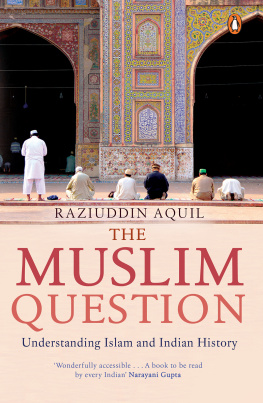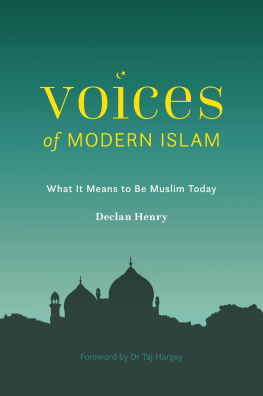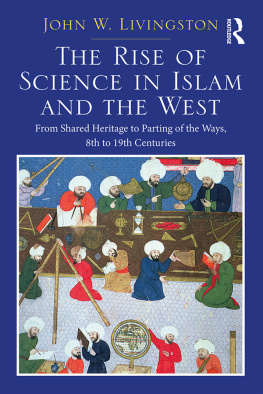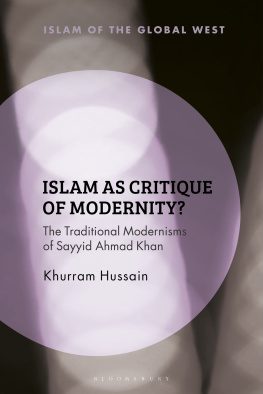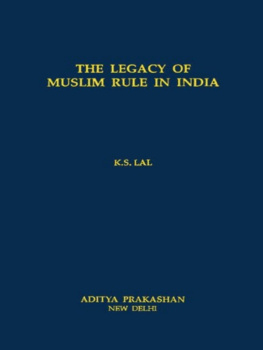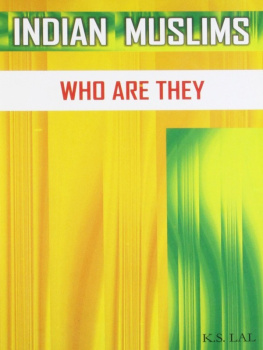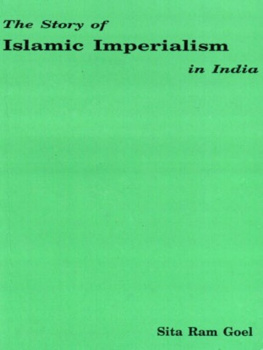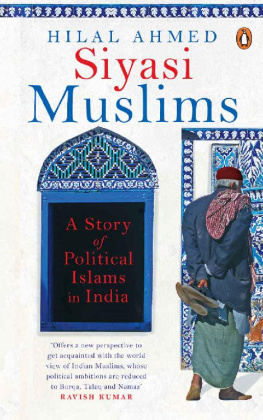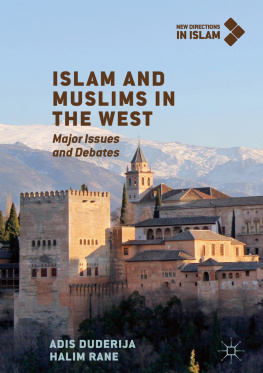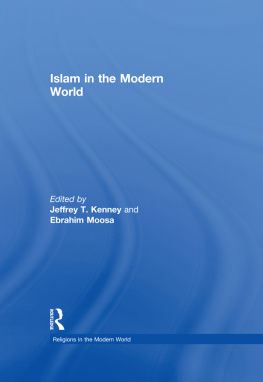Preface to the Paperback Edition
T he publication of this paperback edition provides an opportunity to once again reflect on the turmoil in India and abroad since the time the book was written, and the possibilities for the future. It offers a provocative way to think historically and reasonably about some of the critical issues involving Islam in the Indian subcontinent. In many cases, the hotly contested issues have their genealogies dating back to the medieval and the early-modern eras. But, while interrogating these concerns, historians tend to either project modern problems back in time, when they did not exist, or simply criticize existing scholarship. In these times of intolerance in religion and politics, it is imperative to develop a new theoretical framework through which one may re-examine the past. The challenge here is to not merely offer a revisionist interpretation.
It is well established that racial chauvinism and sectarian struggles are foundational to Muslim societies from their very early days, with doubts, acrimonies and hypocrisies acquiring almost doctrinal sanctity. Consider the newly empowered Bedouin Arabs condemning Iranians as a dumb people, while anyone with a sense of history will know the latter as one of the most civilized and sophisticated nations of the ancient world. The Iranian attempt to remain relevant in the current geopolitical context continues to be challenged by Saudi Arabia, a close ally of the US, which, in turn, is an ally of Egypt and Israelthese are ancient struggles that are being continually reinvented.
At the same time, Shias and Sunnis are locked in an unresolvable tussle, with both groups regarding each other as eternal enemies, not to mention the precarious predicament of smaller Muslim communities. As in all other inequitable societies, majority groups among Muslims too have always used political power to persecute and suppress minority cultures. Any serious discussion on these topics either slips into the idea of unity of the brotherhood or is simply dismissed as the tendency to create social or political controversy, a seditious fitna.
Some of the prevailing misunderstandings and confusion regarding Islam are due to the misinterpretation of the notion of jihad, loosely translated as holy war on behalf of God. On a closer look, the theoretical positions clearly identify jihad as the struggle to control ones own self, to enable one to tread the righteous path for eternal bliss; it is a struggle of great value (jihad-i-akbar). Lesser struggles (jihad-i-asghar) may involve combat to enforce the righteous path shown by God; these are usually taken up by fundamentalist and extremist groups who do not have any moral authority to do this.
The encouragement for establishing acts of virtue and forbidding reprehensible actsknown in Quranic terms as amr bil maaruf wa nahi an al munkiris not, in any way, a free licence to kill. The difficulty with Islam in the current context is that self-appointed custodians of the faith have taken it upon themselves to set things right in a violent manner, according to their misplaced understanding of Islamic laws.
Certainly, the Holy Prophet would not have recommended a bin Laden or Baghdadi as a violent peddler of his faith; yet, there is no denying the fact that they have succeeded in seriously hurting the image of Islam. Over a billion and a halfand countingMuslims worldwide are aghast to be held accountable for what has gone wrong with the religion they practise. Intellectually, in medieval Islam, there was a long-standing struggle for dominance between traditional and rational sciencessuch as between theology and history. As one historiographer put it, while theology was privileged in Islam as a first-rate discipline which attracted a whole lot of third-rate people, history was considered a second-class profession that attracted many first-class minds; while theologians were all for conformity, historians were supposed to doubt and question everything.
Although men of religion claim they believe in peace, political violence is often orchestrated in the name of religion. Imam Ghazali (d. CE 1111) was a leading Sunni scholar and Islamic revivalist of Iranian descent. Apart from advocating the strong power of the state, under the Abbasid Caliphate, to subdue and govern people, he also suppressed contemporary philosophical thinking. He did not hesitate to encourage the mob to browbeat philosophers into meek submission. The finest criticism of this culture of violence came from the illustrious Spanish philosopher Ibn Rushd (d. CE 1198). Rushd reminded the theologians that critical thinking on such mattersas whether the world was eternal or whether God had created itshould be the preserve of intellectual discussions or theological disputations; the ignorant public should not be provoked to attack intellectuals and burn their books. In response to Ghazalis strong critique of philosophical debate in his Incoherence of the Philosophers, Ibn Rushd proffered his own rational argument in his Incoherence of the Incoherence. A critical reconsideration of both theological and philosophical positions may be fraught with serious repercussions now, as not to mention theologians, even the intellectual heirs of Ibn Rushd are perhaps intolerant. After all, intolerance appears to be the leitmotif of the time.
How, then, does one deal with such a situation? Tolerance and space for difference can be one simple answer. This can help form a broad and inclusive perspective, which, in the case of medieval India, the Mughal emperor Akbar was certainly able to develop by listening to all. His great-grandson Aurangzeb, on the other hand, could not follow in his footsteps because, in certain moments, he invoked and pandered to Islamic orthodoxy. Akbar was able to develop an inclusive approach to politics and legitimately earned the reputation for doing something great; Aurangzebs partisan approach could have only been appreciated by a section of the interested parties and, hence, he is a hero for some and villain for others.

